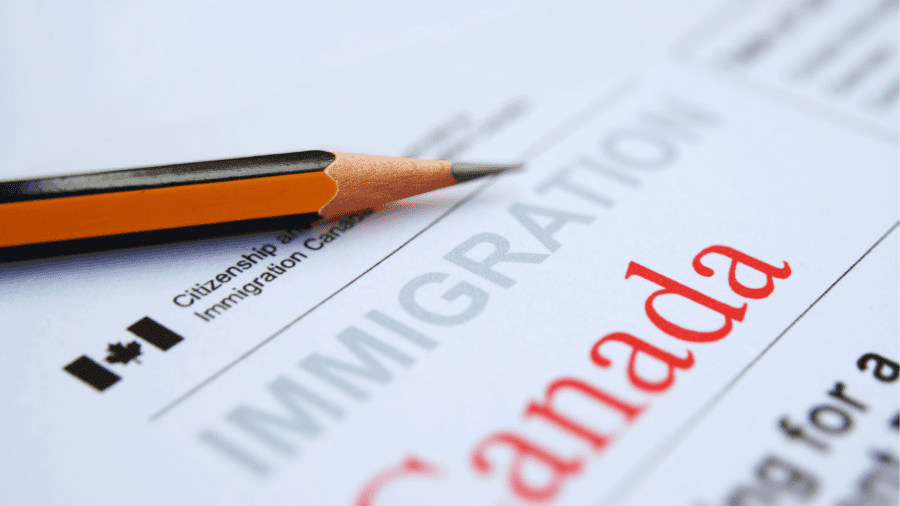This article originally appeared in the Hub.
By Aaron Wudrick, January 10, 2024
Canada has been shaped by large-scale immigration. With the exception of Indigenous Peoples, the vast majority of Canadians today are either immigrants or descendants thereof. Our nation has thrived as a pluralistic and multiethnic society, built through the gradual integration of people from around the world.
While this is largely a good news story it should not obscure a hard truth: in the 21st century, the challenges associated with immigration are vastly different from those of 50 or 100 years ago, and until recently policymakers have been unwilling to discuss immigration policy accordingly. These challenges can be broadly categorized into three areas: economic impact; infrastructure capacity; and cultural friction.
When it comes to economic impact, immigration has historically, on balance, been beneficial to Canada’s economy and standard of living. But in recent years the evidence has become more mixed. In particular, the sheer number of new arrivals—over one million in 2022 alone—especially in the form of temporary and lower-skilled migrants, is increasingly being used as a substitute for Canadian labour, driving down wages. This downward pressure, while good news for employers trying to contain costs, has the dual effect of dragging down per-capita GDP, while disincentivizing business investment in labour-productivity-enhancing innovations.
The cause of the jump in total migrants per year is also no secret: there has been an explosion in the number of international postsecondary students studying in Canada over the last decade—jumping from 248,000 in 2012 to 807,000 in 2022—largely as a result of postsecondary institutions seeking a more lucrative income stream since they are able to charge international students much higher fees. With no annual cap on foreign student visas, this has effectively become a massive back-door entry loophole to get into the country. Many of these students arrive with the hope of becoming permanent residents, which also entitles them to sponsor family members to come to Canada, further boosting migration levels.
Equally concerning has been the effect of this population growth on housing prices, which is a straightforward arithmetic function of supply and demand. Canada has some of the most expensive housing in the world, overwhelmingly a result of insufficient housing supply, especially in major cities. High levels of immigration, also concentrated in these cities, exacerbate the problem from the demand side. Both Canadians and newcomers suffer if they cannot afford a place to live. Similarly, many Canadians are unable to find a family doctor and face crowded schools, transit, hospitals, or other crumbling infrastructure. Rapid population growth makes these challenges harder to manage.
But, while concerns about immigration’s impact on our economy and infrastructure have slowly begun to attract more attention and public discussion, the issue of cultural friction remains largely taboo.
It should be said that historically, Canada has been fairly successful at integrating people from diverse religious, linguistic, and racial backgrounds, and even today there is a strong case that Canada manages these challenges better than most other countries. What was once a fairly organic process that allowed for integration over years, if not generations, has been supplanted by activist government policy that preaches an official doctrine of big-M Multiculturalism, which fetishizes and subsidizes cultural differences while simultaneously erasing and downplaying Canadian history. In effect, the implicit social contract between Canada and newcomers has become unbalanced. Canada is and should remain a place where newcomers are free to retain their religion, language, and culture. But we must also actively invite all Canadians, new and old, to join a shared national project to ensure we are working towards living together rather than simply side by side.
In addition to counterproductive government policies, few have noted that the integration process has been dramatically changed by technological advance which now allows for immigrants to retain permanent, real-time cultural ties to their native countries. This phenomenon—where people can be physically present in one place but maintain daily cultural and social ties to their homeland—presents a special challenge to a country with a relatively weak national identity. This is particularly true of Canada’s large diaspora communities, including those from China, India, and Iran, which have increasingly impacted Canada’s international relationships and given rise to interference (alleged or proven) by these countries on Canadian soil.
Canada has historically enjoyed strong support for immigration across the political spectrum, a consensus that is not common in other countries. Recent opinion polling suggests that this consensus is rapidly eroding, if not already gone. We are long overdue for an honest, constructive, and robust debate about the way forward on immigration. We owe it to Canadians—both present and future.
Aaron Wudrick is the domestic policy director at the Macdonald-Laurier Institute.






